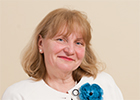An inquiry regarding the narrowing scope of Estonian as a language of science (no. 716)
Session: 15th Riigikogu, 5th session, plenary sitting
Date: 2025-03-17 21:48
Participating Politicians:
Total Speeches: 26
Membership: 15
Agenda Duration: 31m
AI Summaries: 26/26 Speeches (100.0%)
Analysis: Structured Analysis
Politicians Speaking Time
Politicians
Analysis
Summary
The Riigikogu’s sixth agenda item addressed a question posed by Jaak Valge and Leo Kunnas regarding the shrinking scope of Estonian as a language of science. The questioners asserted that the adoption of English in universities is deepening: the number of doctoral students in Estonian-language programs has decreased, and in 2024, the proportion of Master’s theses in Estonian was 65% and the proportion of doctoral dissertations was only 7% in public universities; in 2017, the proportion of doctoral dissertations in Estonian was still 23%. An argument was presented that the rapid adoption of English in higher education has not improved international rankings, and the increasing proportion of foreign doctoral students creates potential obstacles to the preservation of Estonian as a language of science. The discussion also touched on the possibilities of artificial intelligence in translating Estonian doctoral dissertations and the need to evaluate model indicators for academic careers that value the effectiveness of Estonian-language scientific work. Central to the matter was the question: can and should Estonian as a language of science be maintained in the context of international competition, and what steps are necessary to ensure a greater Estonian contribution within the framework of universities and research funding.
Decisions Made 1
No decisions were made. Negotiations continue, and concrete steps to protect Estonian scientific terminology or to secure funding in the short or medium term have not yet been adopted.
Most Active Speaker
The role of the most active speaker—representing the inquiry—was filled by Jaak Valge; he spoke several times and drew attention to the inquiry and to how the preservation of Estonian scientific language and academic quality are linked to the long-term competitiveness of Estonia’s economy and education system. The ceremonial aspect: this active speaker’s position is “other” (from the perspective of parliamentary nature).
Aseesimees Arvo Aller
AI Summary
The Estonian Parliament is discussing the inquiry submitted on February 10, 2025 by Jaak Valge and Leo Kunnas regarding the narrowing of Estonian's use as a scientific language.

Jaak Valge
Profiling Fraktsiooni mittekuuluvad Riigikogu liikmedAI Summary
Jaak Valge warns about the rapid Anglicization of Estonian universities and cites examples that in 2024 Estonian-language master's theses made up 65% and doctoral theses only 7%, and the share of Estonian-language doctoral theses has declined over time (in 2017 it was 23%), and he argues that English-language scientific work does not improve international rankings and that Estonian higher education should strive for the preservation and development of Estonian-language teaching and science.
Aseesimees Arvo Aller
AI Summary
Vice-Chairman Arvo Aller thanked the representative of the inquirers and invited the Minister of Education and Science Kristina Kallas to the rostrum to respond to the inquiry.
Haridus- ja teadusminister Kristina Kallas
AI Summary
Kallas stresses that, although science is international and English is inevitable and the economic value of a doctoral degree depends on salary, Estonia must increase the value placed on Estonian-language doctoral studies and Estonian-language research, and require doctoral students to have at least B1 Estonian language proficiency, so that more Estonians would pursue doctoral studies and contribute to the economy.
Aseesimees Arvo Aller
AI Summary
In Arvo Alleri's speech it was said that there are no questions for him, and Jaak Valge was invited to speak.

Jaak Valge
Profiling Fraktsiooni mittekuuluvad Riigikogu liikmedAI Summary
Jaak Valge agreed with the minister's statement that full-time study means making concessions when working on the side, but noted that many international students work and Estonian language learning suffers, and asked why proposals aren't put forward that would ensure the quality of study without making concessions.
Haridus- ja teadusminister Kristina Kallas
AI Summary
Kristina Kallas said that international students devote considerably more time to studying than Estonian students, although they work less, and that in Estonia Estonian language study is mandatory to the extent of 6 EAP credits, and upon completing doctoral studies at least half must be able to speak Estonian at the B1 level.
Aseesimees Arvo Aller
AI Summary
There were more questions at the end of the speech, and Hele Everaus was requested.
Hele Everaus
AI Summary
During a lecture, Hele Everaus said that although the choice of language in presenting results is ultimately not important and it may broaden one's view of the world, there is a major concern about the level of students' oral Estonian expressive ability, because students sometimes answer with half a sentence and are not able to speak with the patient long enough.
Aseesimees Arvo Aller
AI Summary
Vice-Chairman Arvo Aller says that now is your time.
Hele Everaus
AI Summary
They remember that exams used to be given orally in full sentences, and they emphasize that the preservation of the Estonian language is a serious issue, because young people no longer know how to speak, and they apologize.
Aseesimees Arvo Aller
AI Summary
They thank the listeners.
Haridus- ja teadusminister Kristina Kallas
AI Summary
Education and Science Minister Kristina Kallas said that in the era of artificial intelligence, universities are quietly moving back to oral assessment, and this trend is clearly visible to many.
Aseesimees Arvo Aller
AI Summary
The vice-chairman Arvo Aller asks that Leo Kunnas be invited onto the stage.

Leo Kunnas
Profiling Fraktsiooni mittekuuluvad Riigikogu liikmedAI Summary
Leo Kunnas asked what the point is of teaching in Estonian higher education institutions in English, when we can't compete with the ordinary universities of the English-speaking world, and said that he has difficulty understanding it.
Haridus- ja teadusminister Kristina Kallas
AI Summary
If Estonia does not admit international students, especially in the arts disciplines, those disciplines would disappear, and with them the international scientific level; therefore international education and English-language instruction are indispensable.
Aseesimees Arvo Aller
AI Summary
The vice-chairman, Arvo Aller, invites Helmen Kütt to speak.

Helmen Kütt
Profiling Sotsiaaldemokraatliku Erakonna fraktsioonAI Summary
Helmen Kütt thanks the chair and the minister for the appeal and emphasizes that a taxpayer-funded doctoral thesis is the beginning of a scientific career, and the broader the access to the materials of these research works and theses, the greater the benefit to society, even if some people do not have a doctoral degree.
Haridus- ja teadusminister Kristina Kallas
AI Summary
Kristina Kallas said that the main role of a doctoral dissertation is world-class scientific research, which is internationally recognized primarily in English, but this does not mean that Estonian as a language of science will disappear or that PhD holders would not be able to write Estonian-language scientific articles.
Aseesimees Arvo Aller
AI Summary
The deputy speaker thanks and announces that the questions have indeed run out, opens negotiations, and asks the representative of the inquirers, Jaak Valge, to speak.

Jaak Valge
Profiling Fraktsiooni mittekuuluvad Riigikogu liikmedAI Summary
Jaak Valge emphasizes that although writing a doctoral thesis in English does not mean the death of the Estonian language, English-language scientific research nevertheless threatens the preservation of the Estonian scientific language, and the breach of administrative contracts at the University of Tartu indicates a hindrance to the development of Estonian-language education and terminology.
Aseesimees Arvo Aller
AI Summary
They ask for three more minutes.

Jaak Valge
Profiling Fraktsiooni mittekuuluvad Riigikogu liikmedAI Summary
Jaak Valge criticizes that out of 126 doctoral theses only ten are in Estonian, and that the administrative agreement does not guarantee Estonian-language summaries or the development of a terminological base, and calls for stricter compliance and for modern solutions, including the use of artificial intelligence to improve the accessibility of Estonian-language scientific work.
Aseesimees Arvo Aller
AI Summary
The vice-chairman thanked the participants, announced that there were no requests to speak, and invited the minister to deliver the closing speech.
Haridus- ja teadusminister Kristina Kallas
AI Summary
Education and Science Minister Kristina Kallas said that the development of the Estonian language is more hopeful than bleak, citing examples from foreign countries and educational institutions where Estonian is used (the 80th anniversary of the Estonian School in Stockholm, Narva College's international students who study in Estonian) and emphasized that employers should be more demanding and that in academic careers the Estonian-language scientific work coefficient should be taken into account, and that teacher education in Estonia is conducted in Estonian.
Aseesimees Arvo Aller
AI Summary
Thank you! The negotiations are closed and today's sixth item on the agenda has been dealt with.